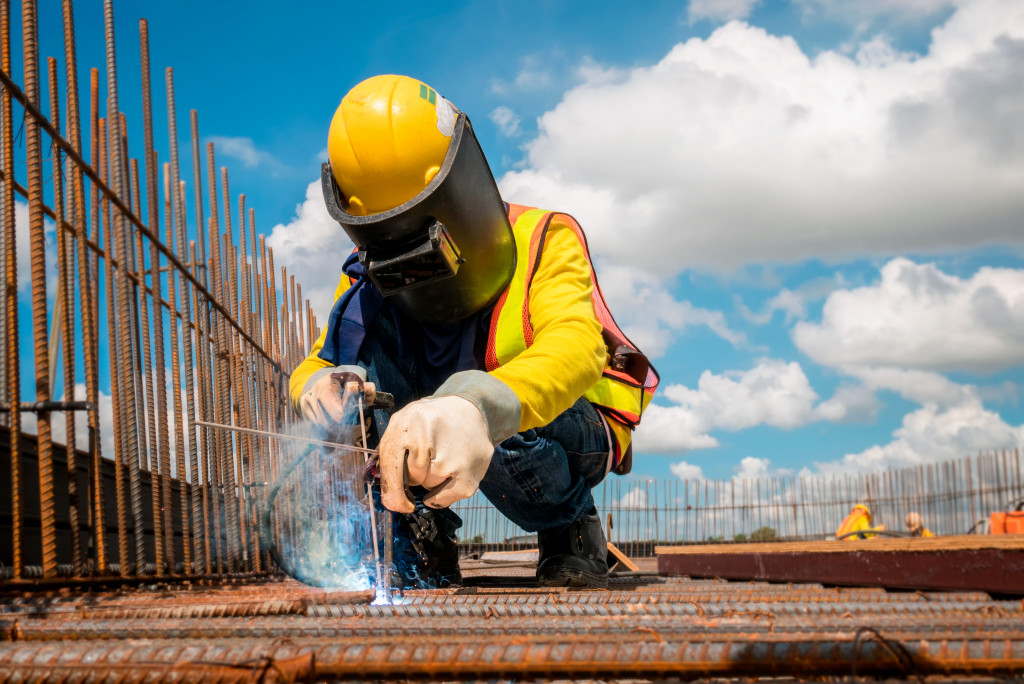Everything was halted when the COVID-19 hit countries around the world. Establishments were forced to close or shut down, and people were told to stay indoors to contain the spread of the virus. An industry that was affected was construction, wherein residential, commercial, and industrial construction was halted. It has to be stopped because supply chains were also halted and the safety of the construction workers must be prioritized.
Now that COVID-19 is not showing any signs of going away soon, the construction industry must adjust to the changing times. It had to adjust so that it could continue its operations. These changes are trends that we need to look out for soon.
Remote Worksites
To contain the spread of the virus, people are now working remotely. Mobile apps help people in the construction industry take accurate measurements, real-time inspections, and many more.
Working remotely ensures the continuous productivity of the company without the need for in-person meetings. This can be a disadvantage for people who do not have a stable internet connection at home and gadgets for working. Remote working can be effective as long as the employer checks in with the employees regularly.
One of the disadvantages of remote working is the way the company tracks the productivity of its employees. It’s hard to oversee operations when you are working at home. The technique here is to communicate with your employees consistently so that you can monitor them. Still, reward good performance and respect their work-life balance as you would in a regular office setting. Nothing should change except the place of work. Employees could still experience burnout even when working from home.
Residential Projects As a Priority
Commercial projects contain more complicated design requirements, require codes and permits, have tight deadlines, require unique materials, and have higher construction costs than residential projects. These are the reasons why construction companies prioritize residential projects because they are less time-consuming. Commercial projects take long enough to finish, and they can take even longer with COVID restrictions in place. Residential projects are much easier to construct as compared to commercial ones.

Stronger Collaboration
Suppliers, contractors (HVAC experts, carpenters, painters, electricians, etc.), subcontractors (subcontract drywallers, plumbers, carpet layers, roofers, landscapers, etc.), and developers have a stronger collaboration because they are all affected by the pandemic. They are now meticulous when it comes to choosing bidders and clients because they want to lessen risks. Moreover, the price of construction materials is much higher now than before because of demand and supply.
Safety
To ensure the safety of everyone, construction companies have to comply with the Occupational Safety and Health Act (OSHA), U.S. Department of Health and Human Services standards, and Centers for Disease Control and Prevention (CDC).
Construction companies have also put up signs of washing their hands regularly, putting their masks on, maintaining social distance, and bottles of alcohol are also placed on every table. More than that, employees are also encouraged to be vaccinated to ensure everyone’s safety. Employees are free to raise their concerns to these concerned agencies if the company has violated safety protocols.
Sustainability
Companies want to participate in the green movement and want to build sustainable homes. Sustainable homes are more expensive, but they last longer compared to ordinary homes. The materials used in a sustainable home are safe for the environment and leave less carbon footprint. A sustainable home is made up of eco-friendly materials—these are recycled materials and renewable materials.
Many companies have been affected by the pandemic—operations have been halted, and establishments have closed. Companies have been tested because it’s unlike what they’ve experienced, and it’s difficult to bounce back from something so life-changing. But this doesn’t mean that companies won’t adjust their ways because it will cost them profit. They have to find a way around this predicament to be able to survive. These adjustments are what make them flexible as a whole.
These uncertain times are not only challenging, but it makes people more resilient and more appreciative of the things that really matter, whether that’s personal or business-wise. It also shows how innovative people are because they don’t stay where they are planted—instead, they move when needed. And there is nothing braver than that.

